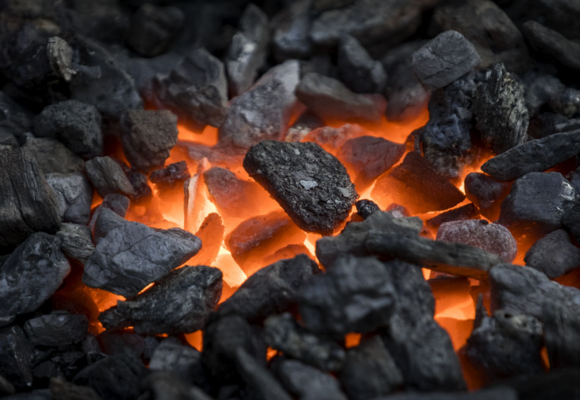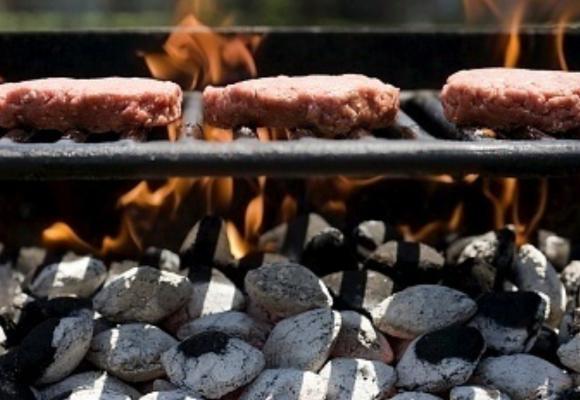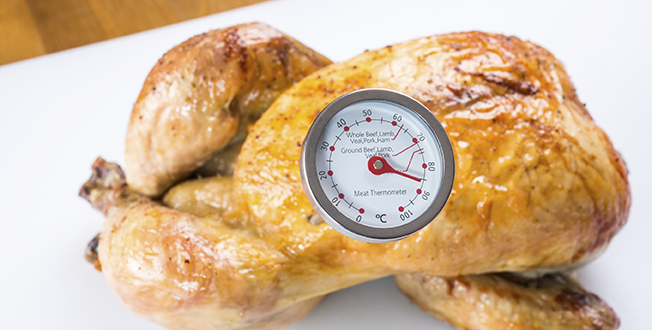Grilling with charcoal is an art form that brings a unique flavor and an enjoyable experience to outdoor cooking. However, many enthusiasts face a common challenge: their charcoal keeps going out, turning what should be a relaxing activity into a frustrating puzzle.
This article aims to explore the core reasons behind this issue. From airflow problems to the type of charcoal used, we’ll cover various factors that can hinder your grilling success.
By understanding these elements, you’ll be better equipped to maintain a consistent, hot fire that’s perfect for cooking your favorite grilled dishes. Let’s explore the critical aspects of charcoal grilling and how to ensure your fire stays lit.

Reasons Why the Charcoal Doesn’t Stay Lit
Charcoal grilling requires more than just lighting the fire; it’s about maintaining it. One of the key challenges grillers face is keeping their charcoal lit. This issue can arise due to various factors, such as improper airflow, wet or low-quality charcoal, or even the way the charcoal is stacked. Understanding these elements is crucial to ensuring a consistent and reliable flame. In this section, we will dissect these common issues and provide insights on how to overcome them, ensuring your grilling sessions are both enjoyable and successful.
Charcoal is Dry
It might seem counterintuitive, but ensuring your charcoal is dry is vital for a successful grill. Moisture is the nemesis of a good flame. Charcoal that has been exposed to moisture, whether through humidity or direct contact with water, will struggle to light and maintain a flame. Storing your charcoal in a dry, covered area is crucial. We’ll dive deeper into the best practices for storing charcoal and how to tell if your charcoal has been compromised by moisture.
Ventilation Problem
Airflow is the lifeblood of a charcoal grill. Without proper ventilation, your charcoal will quickly extinguish. This section will focus on how to manage your grill’s ventilation system effectively. We’ll discuss the role of air vents, how to position them, and common mistakes that lead to poor airflow. Understanding these tips will not only keep your charcoal lit but also help in regulating the temperature for optimal cooking.
Clean Grill
A clean grill is more than just a matter of hygiene; it’s a key factor in maintaining a consistent fire. Ash and residue from previous grilling sessions can clog air passages and dampen the effectiveness of your charcoal. This part of the article will guide you through the steps to clean your grill properly, focusing on the areas that most affect charcoal performance.
Are You Closing the Lid?
The question of whether or not to close the lid while grilling can significantly impact your charcoal’s performance. Closing the lid can create a controlled environment that aids in temperature regulation, but it can also restrict airflow if not done correctly. We will explore the pros and cons of grilling with the lid open versus closed and how each method affects your charcoal.
You Have Low-Quality Charcoal
Not all charcoals are created equal. The quality of your charcoal can greatly influence how well it lights and stays lit. In this section, we’ll examine the characteristics of high-quality charcoal and why it’s worth investing in. We’ll also discuss the different types of charcoal available and how they impact your grilling experience.
Why Won’t My Charcoal Grill Get Hot?
Sometimes the problem isn’t just keeping the charcoal lit, but getting it hot enough. Several factors can cause a lackluster temperature, from the type of charcoal used to the way it’s arranged. We’ll address common pitfalls and provide tips to achieve the high heat necessary for effective grilling.

Is Your Grill Clean?
Reiterating the importance of a clean grill, this section will delve into the nuances of grill maintenance. A well-maintained grill not only ensures better performance from your charcoal but also extends the life of your grill. We’ll offer a step-by-step guide on thorough cleaning practices and how often you should clean your grill.
Charcoal
Understanding your charcoal is essential. This part will focus on the different types of charcoal - lump charcoal versus briquettes - and their specific properties. Each type has its own set of advantages and ideal uses, which we will explore to help you choose the best option for your grilling needs.
Dampers
Dampers play a critical role in controlling your grill’s temperature. This section will teach you how to use dampers effectively to regulate airflow and maintain a steady temperature. Proper use of dampers can be the difference between a successful grilling session and a frustrating one.
Indirect or Direct?
Choosing between indirect and direct grilling methods can significantly affect the heat of your charcoal. We will explain these two methods, their best uses, and how they impact the heat generated by your charcoal. Understanding when to use each method will enhance your grilling versatility and
skill.
Thermometer
Finally, we’ll discuss the importance of a grill thermometer. Monitoring the temperature inside your grill is crucial for both the maintenance of your charcoal and the cooking process. A thermometer can help you make informed decisions about when to adjust the airflow, add more charcoal, or modify your cooking method. This section will offer insights into choosing the right thermometer and how to use it effectively to ensure your grilling experience is both enjoyable and precise.

Each of these topics is essential for understanding and addressing the common issues that can arise when grilling with charcoal. By exploring these aspects in detail, you’ll gain a comprehensive understanding of how to maintain a consistent and effective charcoal fire, enhancing your grilling experiences.

